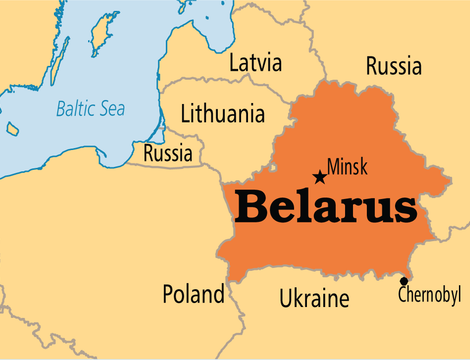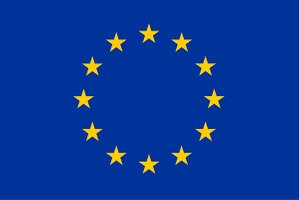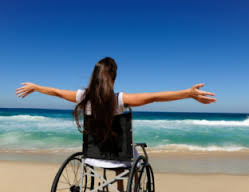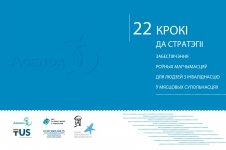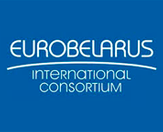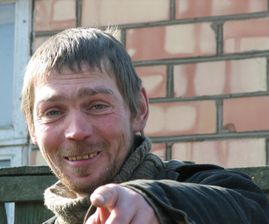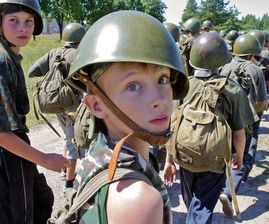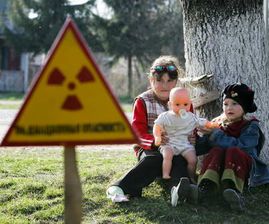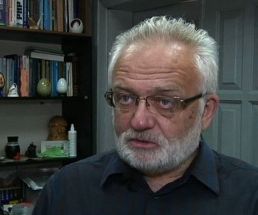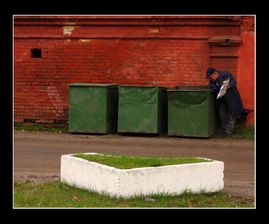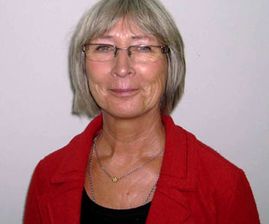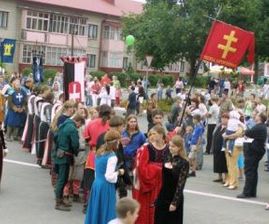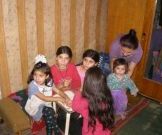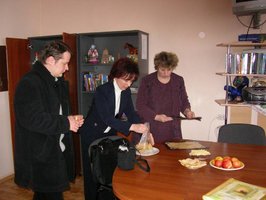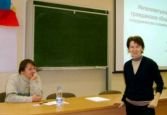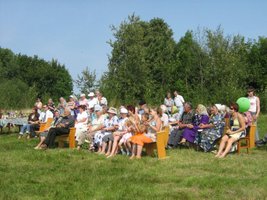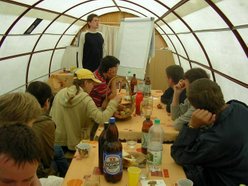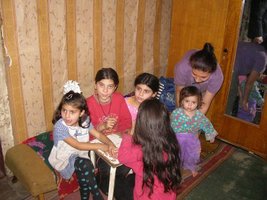A TALE ABOUT LIFE INCLUSION
DEH - europeanhouse.org
HVIDERUSLAND
BELARUS
1994 - 2016+ ....SÅ LÆNGE HAR VI INDTIL VIDERE ARBEJDET I HVIDERULAND. I 1997 startede vort samarbejde med Belarus for alvor. Vi have siden 1994 haft besøg og selv besøgt landet ved flere lejligheder, og havde herigennem etableret kontakt med flere NGOer. Mange af disse er fortsat vore tætte samarbejdspartnere.
Vi har arbejdet med civilsamfundsudvikling bredt. Først med støtte til oprettelse af foreninger (NGO) i et land, som var midt i en ny udvikling, fra et sovjet styret og sovjet tænkende land uden traditioner og erfaring i civil samfundets rolle i et demokratisk samfund.
Mange års arbejde har udviklet NGO sektoren i landet. Det er dog fortsat et diktatorstyret land, som er totalt top down styret. Det betyder fortsat, at der skal arbejdet hårdt for at få civilsamfundet involveret.
De sidste år har vi koncentreret vort arbejde med udvikling af sociale NGOer, der i samarbejde med lokale myndigheder kan være med til at gøre en forskel for socialt udsatte grupper.
Vi har sammen med vore partnere gennemført udvikling af NGOerne, understøttet udvikling af den sociale kapital i flere lokalområder, oprettet et kvindekrisecenter, arbejdet med patientrettigheder, udvikling af inklusion af handicapområdet for blot at nævne nogle af vore fælles aktiviteter.
Fotos af den hviderussiske journalist ... fra en udstilling i DEH
1994 - 2016+ THAT IS HOW LONG WE HAVE WORKED WITH BELARUS UNTIL NOW. In 1997 we started really co-operating with Belarus. We have have since 1994 got visited and visited the county on several occasions and had through this established contact with several NGOs. Many of these continued to be our close collaborators.
We have broadly worked with civilsociety-development. First with support to the establishment of associations (NGO) in a country, which was in the middle of a new development, from a sovjet administration and a sovjet thought process without traditions and experience in the civil society's role in a democratic society.
Many years has developed the NGO sector in the country. But it's still a dictatorship country that is still top down managed. So it still means that we have to work hard to be able to get the civil society involved.
The last few years we have concentrated our our work on development of social NGOs who in co-operation with the local authorities can make a difference for socially vulnerable groups. Together with our partners, we have accomplished the development of NGOs, supported development5 of the social capital in several local areas, established a women's crisis center, worked with patient rights, development of the disability area. To just mention some of our activities, we have in common.
The Actual Project 2016-2018
AGENDA FOR BELARUS
The EC supported project ‘Agenda for Belarus’ will be developed for the regions to help implement the Convention on the Rights of Disabled Persons in Belarus. The project lasts 3 year.
Our partner organization ‘the Office on the Rights of Persons with Disabilities (Office)’ is starting a new campaign, "Agenda 50". The designed campaign will be implemented in collaboration with an international consortium "EuroBelarus" in Lithuania, Centre for European Transformation CET in Belarus, TUS from Poland and us, ‘The European House’.
The main objective of the campaign is the implementation of the basic principles of the Convention on the Rights of persons with disabilities in decision-making on disability issues in local communities.
The campaign will be aimed at achieving sufficiently practical results - namely, to the embodiment of the principles of the Convention into real practical steps in at least five pilot communities of Belarus, - says Director of the Office on the Rights of Persons with Disabilities Enira Bronitskaya.
The Convention on the Rights of Persons with Disabilities, signed by Belarus September 28, 2015, can and should become a platform for progress in addressing disability issues. Although it must be admitted that the formal signing of the international treaty itself can not solve all the problems. Only understanding and acceptance of the fact of the Convention, its implementation at the level of everyday practices and everyday life can decisively influence the development of social relations; as well as insufficient formal declaration of acceptance of the Convention at the national level. This requires full implementation of the work on high standards in everyday reality, not only in the language of the law, but through practice.
The experience gained by the countries of Europe even during the implementation of the Standard Rules on the Equalization of Opportunities, proved the necessity of making efforts to innovate it is at the level of local communities. So the Swedish efforts, followed in many European countries, have been made for the introduction of advanced standards in respect of disability. At this movement is called "Agenda 22", which means literally 22 points (22 - the number of points of the Standard Rules for the implementation of) the interpretation of the high standards of an international treaty for a particular community - district, city, town. And most importantly - the agenda is information developed by the communities themselves, which allowed them to make realistic and effective efforts.
Todays Belarus is in a similar situation. The need to introduce an innovative paradigm of understanding of disability and, consequently, changes in laws, practices and most importantly - a relationship in society requires a responsible and strategic approach.
- In this vein, we see a very useful experience in the design of local agendas - says the coordinator of the ‘Office’s Sergey Drozdowski. – The Convention is spelled out in Articles 50 and gives an understanding and implementation of each article at the level of the local community and will, in the form of "Agenda 50", may be a way to change quality. This "translation" of each article, taking into account local conditions and opportunities will turn The Convention as a bombastic legal instrument into clear and practical forms, applicable in everyday life.
Aktivitetsopdatering: September 2016
DEH’s partner i Polen og i Hviderusland har nu gennemført en studierejse til Warszawa i Polen. Her har Hviderussiske NGOer og myndigheder på nært hold oplevet hvordan Polen har udviklet og gennemført lokale aktiviteter ifm. ratificeringen af Handicapkonventionen. Erfaringer, både gode og mindre gode, er blevet videregivet, også ved de mange rundbordsmøder rundt om i Hviderusland. Der er nu færdigudviklet en manual, se nedenfor, som giver ’hands on’ eksempler på udvikling og gennemførelse af lokale aktiviteter, her tilrettet den hviderussiske virkelighed.
Følg med i projektet og andet i Hviderusland på vores partners hjemmeside.
Det EU støttede projekt ’Agenda for Belarus’ har indledt de første rundbord møder i Hviderusland i første halvår af 2016.
Arbejdet med at forberede de lokale dagsordener til at gennemføre handicap konventionen er begyndt.
Det første møde havde repræsentanter for lokale myndigheder og regionen, og blev afholdt med organisationer, der repræsenterer mennesker med handicap, og aktive beboere i Stolin og Bobruisk. Mødet markerede starten på det langsigtede arbejde med at forberede de lokale dagsordener for gennemførelse af FN-konventionen om rettigheder for personer med handicap. Møderne er organiseret inden for rammerne af den 50-kampagne. Ideen med disse møder er at diskutere, hvordan man starter på lokalt plan for gennemførelsen af konventionen om rettigheder for personer med handicap, som Belarus har underskrevet.
- Vi ønsker at løse de problemer, der er relateret til handicap og dette på baggrund af behovene i de enkelte bestemt område og målrettet folk, der bor i dette område. Vi ønsker at træde til side fra den etablerede praksis der er at myndigheder "fra oven" bestemmer, hvad der skal gøre. Vi kommunikerer med lokale organisationer og mennesker, så i det fremtidige arbejde vil starte fra denne person, - udtaler direktøren for kontoret om rettigheder for personer med handicap Enira Bronitskaja. - Og for tiden viser regionerne interesse i denne form for arbejde.
Det er almindelig praksis for andre lande. For eksempel, at sådanne lokale dagsordener gennemfører internationale traktater; det gælder også i polske byer. Derfor er den polske organisation TUS involveret, og under besøget delte de polske eksperter fra TUS Foundation (Polen) villigt ud af deres erfaringer til repræsentanterne for regionerne. Hviderusland har planer om at bruge resultaterne af deres arbejde og algoritmer med justeringer for landet. Således har beboerne i Stolin og Bobruisk villigt indgået i dette initiativ og ønsker at etablere den lokale dagsorden og forsøge at gennemføre disse. Følg med her!
Følg udviklingen på her, vor Hviderussiske partner (Office of rights of persons with disabilities), som implementerer aktiviteterne i Hviderusland.
Du kan også få mere at vide hos Lene Petersen, DEH’s kontaktperson på projektet.
Tidligere projekter / Previous projects
LOCAL COMMUNITY BUILDNG IN BELARUS
LOCAL CIVIL SOCIAL COMMUNITY DEVELOPMENT
Community training and local civil society development
2007-2008
Læs mere om projektet her
INCLUSION IN BELARUS
INCLUSION OF
PEOPLE WITH DISABILITIES
Building the capacity of NGOs and local authorities to implement community services for people with disabilities as a part of de-institutionalization of disabled living in boarding homes in order to replace it with their inclusion and independent living in local communities. Development of a road map for policymaking aimed at de-institutionalization. 2013-2015
CIVIL SOCIETY PLATFORM
CSO PLATFORM FOR ACTIVE CITIZENSHIP IN BELARUS
Strengthening of the capacity of Belarusian citizens and their civil associations to participate in decision making and public policy dialogue on national, regional and local level.
Managing and updating the Website: www.eurobelarus.info
Policymaking activities for civil society development via international Consortia EUROBELARUS and EaP civil forum.
2011-2013
Læs mere om projektet her
LOCAL COMMUNITY BUILDNG IN BELARUS
LOCAL COMMUNITY DEVELOPMENT
Supporting the social dialogue on addressing local matters of importance, i.e. opportunities for vulnerable groups, economic development, environmental issues etc.
2006-2007
PATIENTS' RIGHTS
TOWARDS ADVOCACY FOR PATIENTS' RIGHTS IN THE HEALTH SERVICES
Empowerment processes and training of NGOs members and staff. Capacity building and network training. Basic skills training for web sites, etc.
2009-2010
Læs mere om projektet her
ACTION FOR LIFE
SUMMER HOLIDAY ACTIVITIES FOR SOCIALLY EXCLUDED FAMILIES
Tipsmidlerne (DK)
2003
WOMEN CRISIS CENTER
WOMEN CRISIS CENTER
Establishing the first women crisis center in Belarus. Located in Minsk.
EU Tacis 01-0071
2001-02
Fra projekterne gennem årene
Copyright © All Rights Reserved
DEH
Uraniavej 5
1878 Frederiksberg C

